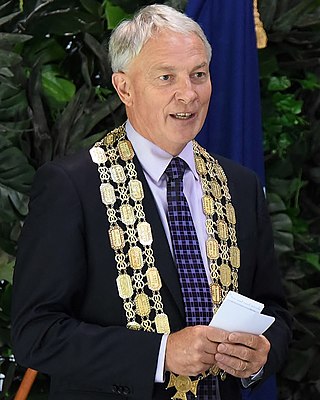
Philip Bruce Goff is a New Zealand politician and diplomat. He currently serves as High Commissioner of New Zealand to the United Kingdom since 2023. He was a member of the New Zealand Parliament from 1981 to 1990 and again from 1993 to 2016. He served as leader of the Labour Party and leader of the Opposition between 11 November 2008 and 13 December 2011.

The 1990 New Zealand general election was held on 27 October to determine the composition of the 43rd New Zealand parliament. The governing Labour Party was defeated, ending its two terms in office. The National Party, led by Jim Bolger, won a landslide victory and formed the new government.
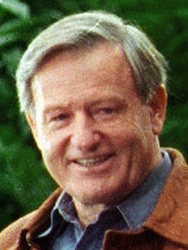
The 1993 New Zealand general election was held on 6 November 1993 to determine the composition of the 44th New Zealand Parliament. Voters elected 99 members to the House of Representatives, up from 97 members at the 1990 election. The election was held concurrently with an electoral reform referendum to replace the first-past-the-post system, with all members elected from single-member electorates, with mixed-member proportional representation. It saw the governing National Party, led by Jim Bolger, win a second term in office, despite a major swing away from National in both seats and votes, and the carrying of the referendum by 53.9% to 46.1%.

John Henry Tamihere is a New Zealand politician, media personality, and political commentator. He was member of Parliament from 1999 to 2005, including serving as a Cabinet minister in the Labour Party from August 2002 to November 2004. Tamihere ran unsuccessfully for Auckland mayor in the 2019 election. He joined the Māori Party in 2020 and from April to October 2020 was the party's co-leader. He became president of the Māori Party in June 2022.

Sir Pita Russell Sharples is a New Zealand Māori academic and politician, who was a co-leader of the Māori Party from 2004 to 2013, and a minister outside Cabinet in the National Party-led government from 2008 to 2014. He was the member of Parliament for the Tāmaki Makaurau electorate in Auckland from 2005 to 2014. He stepped down as co-leader role of the Māori Party in July 2013.

John McGregor Carter is a New Zealand politician, and member of the National Party. He represented the Bay of Islands, Far North and Northland electorates in Parliament from 1987 until July 2011, when he became New Zealand's High Commissioner to the Cook Islands. Since the October 2013 local elections, he served as mayor of the Far North District for 9 years until his retirement from politics in 2022.

Mita Michael Ririnui is a former New Zealand politician and a member of the Labour Party. He was a member of parliament from 1999 to 2011.

Judith Ngaire Tizard is a former New Zealand politician, and a member of the Labour Party.
Brian Kevin Neeson is a New Zealand politician. He was an MP from 1990 to 2002, representing the National Party, and a member of the Waitematā District Health Board from 2004 to 2010.
Jack Arnold Elder is a New Zealand former politician. He was an MP from 1984 to 1999, representing the Labour Party, New Zealand First and Mauri Pacific.
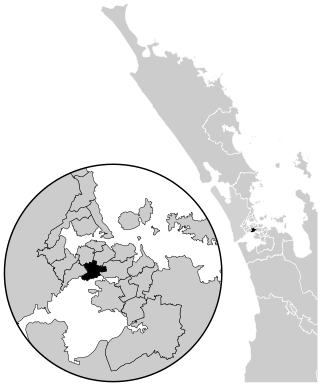
Mount Roskill is a parliamentary electorate in Auckland, New Zealand, returning one Member of Parliament (MP) to the New Zealand House of Representatives. Phil Goff of the Labour Party held the seat from the 1999 election until he resigned from Parliament on 12 October 2016 after contesting and being elected Mayor of Auckland on 8 October 2016 in the 2016 mayoral election. His resignation necessitated a byelection in this electorate which was won by Michael Wood.
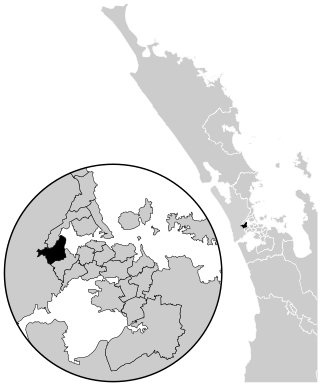
Te Atatū is a parliamentary electorate, returning one Member of Parliament to the New Zealand House of Representatives. The current MP for Te Atatū is Phil Twyford of the Labour Party.
Waipareira was a New Zealand parliamentary electorate that existed for one parliamentary term from 1996 to 1999. Located in West Auckland, it was held by Brian Neeson of the New Zealand National Party, who had narrowly beaten Labour's Chris Carter.
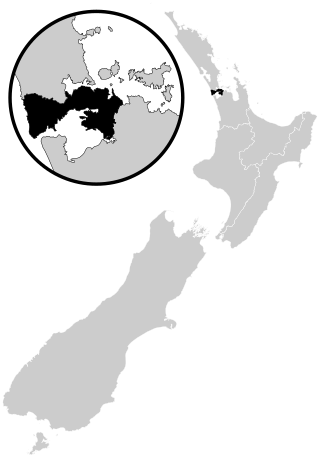
Tāmaki Makaurau is a New Zealand parliamentary Māori electorate returning one Member of Parliament to the New Zealand House of Representatives. It was first formed for the 2002 election. The electorate covers central and southern Auckland, and southern parts of western Auckland. It derives its name from the Māori-language name for Auckland; Makaurau is a descriptive epithet referring to the value and desirability of the land.

Princes Street Labour is a branch of the New Zealand Labour Party in Auckland.
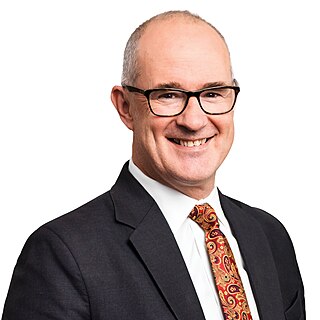
Philip Stoner Twyford is a politician from New Zealand and a member of the Labour Party. He has been a Member of Parliament since 2008. He is the Labour Party MP for Te Atatū.

The 2011 New Zealand general election took place on Saturday 26 November 2011 to determine the membership of the 50th New Zealand Parliament.

Rino Tirikatene is a New Zealand Labour Party politician and a former member of the House of Representatives. He comes from a family with a strong political history.
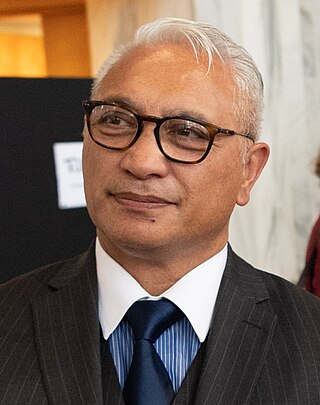
Alfred Ngaro is a New Zealand politician, serving as leader of NewZeal since 2023. He was a list member of the New Zealand House of Representatives from 2011 to 2020, representing the National Party.
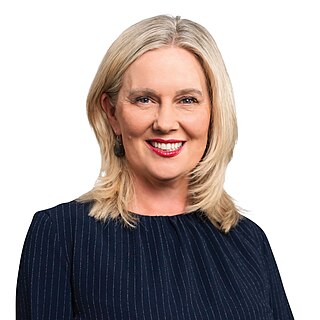
Helen Ione White is a New Zealand politician. In 2020 she became a Member of Parliament in the House of Representatives for the Labour Party. In 2023, she was chosen by Labour to contest the Mount Albert electorate, previously held by former Prime Minister Jacinda Ardern. White won the seat, holding it for Labour, but by a significantly reduced margin of 18 votes.

















